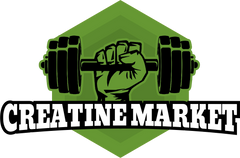When it comes to enhancing athletic performance and recovery, creatine for recovery has emerged as one of the most scientifically supported supplements available. Athletes and fitness enthusiasts increasingly turn to creatine supplementation to optimize their recovery processes and maximize training adaptations. Understanding how creatine supports recovery can help you make informed decisions about incorporating this powerful supplement into your training regimen.
What Does Creatine Do to Help My Body Recover Faster?
The science behind how creatine helps your body recover faster is fascinating and well-documented through extensive research. Creatine works through multiple mechanisms to accelerate recovery and enhance performance. At its core, creatine helps replenish adenosine triphosphate (ATP), your body's primary energy currency, which becomes depleted during intense exercise.
When exploring what creatine does to help your body recover faster, it's important to understand its role in:
- Enhancing protein synthesis rates by up to 50% during the recovery period
- Reducing muscle protein breakdown following intense training sessions
- Supporting cellular hydration, which creates an optimal environment for repair
These mechanisms work together to speed up recovery between training sessions. Research shows that athletes using creatine for recovery experience significantly reduced recovery times compared to those not supplementing, often allowing for more frequent high-intensity training sessions.
Beyond immediate energy replenishment, creatine supports several crucial recovery processes. It helps maintain optimal cellular hydration, creating an anabolic environment that promotes muscle repair and growth. This enhanced cellular environment allows for better nutrient delivery to recovering muscles and supports the removal of metabolic waste products.
Creatine for Injury Recovery
The application of creatine for injury recovery represents a growing area of research and practical application. Studies have shown that creatine supplementation can significantly impact the injury recovery process through various mechanisms.
First, creatine helps maintain muscle mass during periods of immobilization or reduced activity. Research demonstrates that individuals supplementing with creatine during injury recovery maintain better muscle mass and strength compared to those who don't supplement. This preservation of muscle tissue can significantly reduce recovery time and improve rehabilitation outcomes.
Additionally, creatine supports the healing process by:
- Reducing inflammation at the injury site
- Supporting cellular energy production in healing tissues
- Enhancing collagen synthesis for tissue repair
For those recovering from sports injuries, creatine supplementation has shown particular promise in:
- Accelerating rehabilitation progress
- Maintaining strength in uninjured limbs during recovery
- Supporting faster return to training when combined with appropriate physical therapy
Creatine for Muscular Recovery
Understanding how creatine supports muscular recovery is essential for optimizing training results. When using creatine for muscular recovery, several key processes come into play that help muscles bounce back faster and stronger from intense training sessions.
Creatine enhances muscular recovery through multiple pathways:
1. Glycogen Replenishment
Creatine helps muscles store more glycogen, which is crucial for energy availability during subsequent workouts. Research indicates that creatine supplementation can increase muscle glycogen storage by up to 20%, supporting faster recovery between training sessions.
2. Protein Synthesis
One of the most significant ways creatine aids muscular recovery is by enhancing protein synthesis. This process is essential for:
- Repairing damaged muscle fibers
- Building new muscle tissue
- Strengthening existing muscle structures
3. Reduced Muscle Damage
Studies show that regular creatine supplementation can reduce exercise-induced muscle damage markers by up to 33%, leading to faster recovery times and reduced soreness after intense workouts.
Conclusion: Maximizing Recovery Benefits with Creatine
The evidence supporting creatine for recovery is substantial and growing. From enhancing muscular recovery to supporting injury rehabilitation, creatine proves itself as an essential tool for anyone serious about optimizing their recovery process. By understanding and implementing proper supplementation strategies, you can harness the full potential of creatine to support your training goals and performance needs.
Remember that while creatine is highly effective, it works best as part of a comprehensive approach to training and recovery. Whether you're a competitive athlete or recreational fitness enthusiast, incorporating creatine into your recovery protocol can help you achieve your performance goals more effectively and efficiently.



